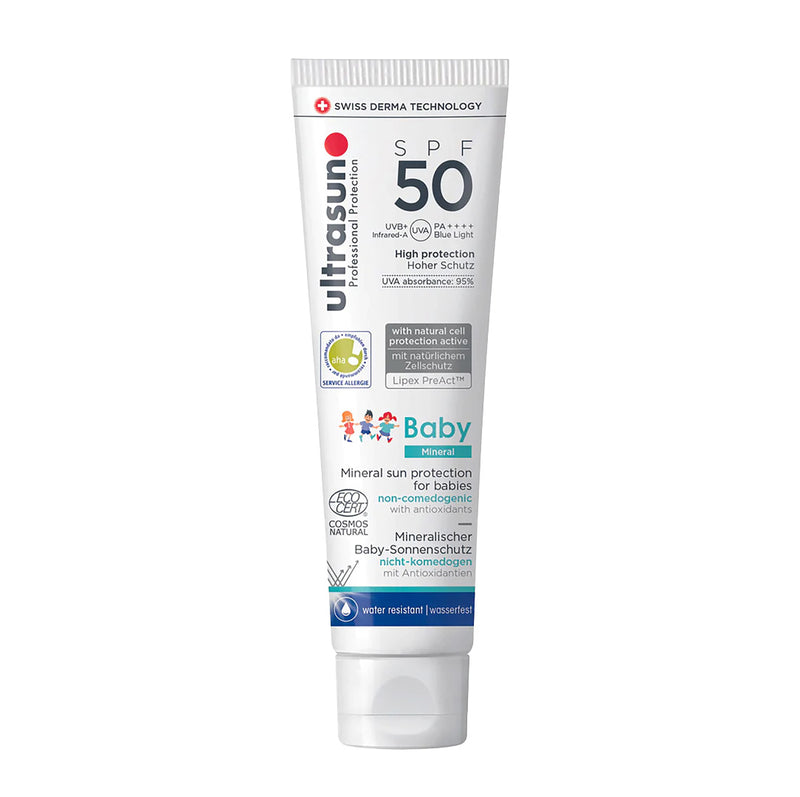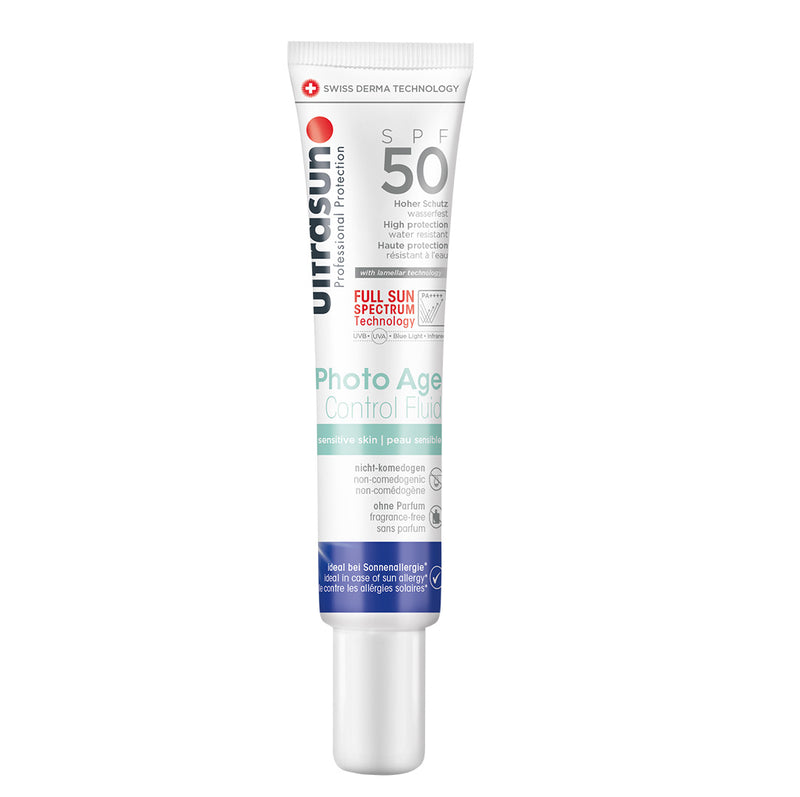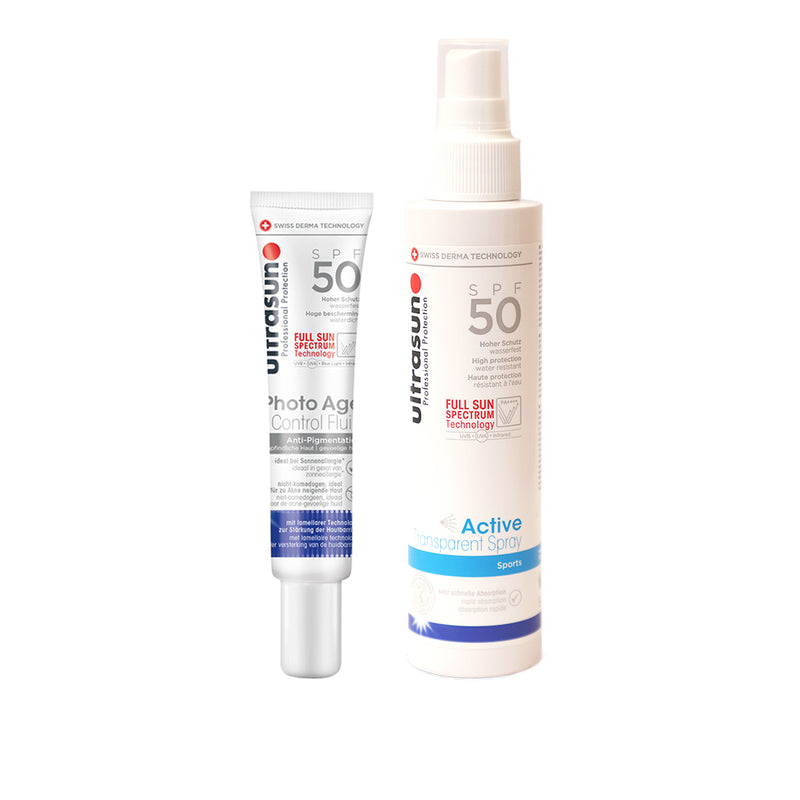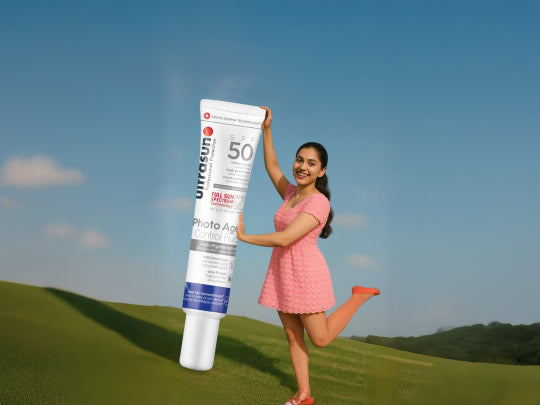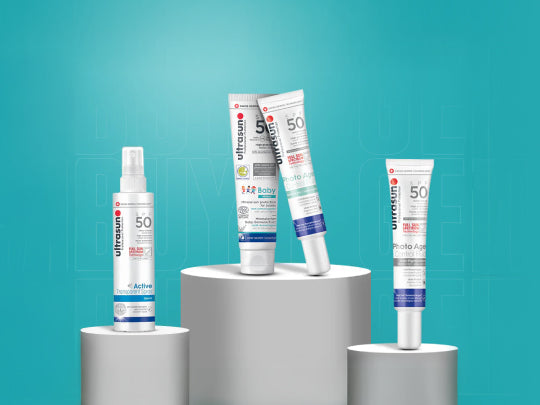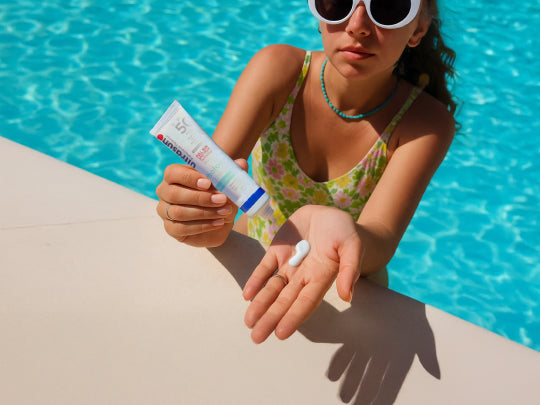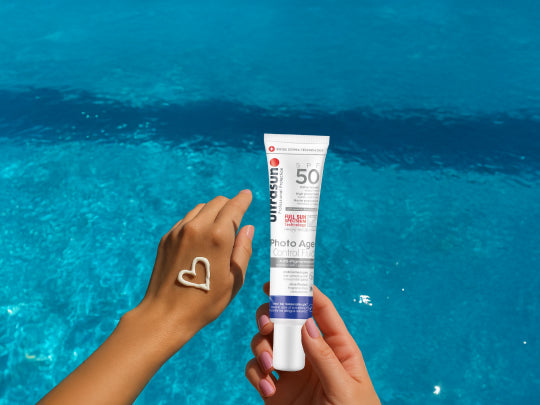Taking care of our skin in your 20s is most Important if you want a youthful appearance in your 30s & 40s. Among the various aspects of skincare, protecting our skin from the damaging effects of the sun is of utmost importance. Sunscreen plays a vital role in shielding our skin from harmful ultraviolet (UV) radiation, preventing sunburns, skin damage, and even the risk of skin cancer. In this article, we will focus specifically on the benefits of wearing sunscreen on the face and explore the reasons why it should be a must part of your daily skincare routine.
6 Benefits of wearing sunscreen on face daily
1. Protection against UV radiation
One of the primary benefits of wearing sunscreen on your face is its ability to provide protection against the harmful rays of the sun. Sunscreens contain active ingredients that act as a shield, blocking the UV radiation from penetrating the skin. By creating this barrier, sunscreen helps to prevent sunburns and minimize the risk of long-term skin damage caused by excessive sun exposure. Regular use of sunscreen significantly reduces the chances of developing skin cancer, such as melanoma, which is often associated with UV radiation.
Ultrasun sunscreen’s products provides the ultimate protection from all UVA, UVB, infrared and blue light protection with SPF 50 and PA++++ rating. It is highly recommended by dermatologist to use Ultrasun sunscreen daily when go outside for the best protection.
2. Prevention of premature aging
Exposure to the sun's UV rays can accelerate the aging process of the skin, resulting in premature aging signs such as fine lines, wrinkles, and sagging. Wearing sunscreen on your face daily helps protect against photoaging, which is the aging of the skin caused by repeated sun exposure. Sunscreen acts as a barrier, preventing the harmful UV rays from breaking down the collagen and elastin fibers in the skin. By preserving the structural integrity of the skin, sunscreen aids in reducing the appearance of fine lines and wrinkles, thus promoting a more youthful and radiant complexion.

3. Maintenance of Even Skin Tone
Uneven skin tone, hyperpigmentation, and dark spots can be a result of prolonged sun exposure. Sunscreen plays a crucial role in preventing these skin concerns by inhibiting the production of melanin, the pigment responsible for skin coloration. By reducing melanin production, sunscreen helps to minimize the occurrence of hyperpigmentation and dark spots, resulting in a more balanced and even skin tone. Incorporating sunscreen into your daily skincare routine can effectively address these concerns and promote a clearer and more uniform complexion.
4. Shielding against environmental pollutants
In addition to protecting against UV radiation, sunscreen also acts as a barrier against environmental pollutants. When applied to the face, sunscreen forms a protective layer that helps prevent pollutants, such as dirt, dust, and chemicals, from settling on the skin. By creating this shield, sunscreen minimizes the potential damage caused by oxidative stress and free radicals, which can lead to skin inflammation, premature aging, and a dull complexion. By incorporating sunscreen into your daily routine, you can effectively defend your skin against the negative effects of environmental pollutants, promoting healthier and more resilient skin.
5. Moisturization and hydration
Contrary to popular belief, sunscreen not only provides protection but can also contribute to skin hydration. Many sunscreens on the market are formulated with moisturizing ingredients that help to retain the skin's moisture levels. By locking in hydration, sunscreen helps prevent dryness and flakiness, promoting a smoother and more supple complexion. The combination of sun protection and moisturization makes sunscreen an essential component of a well-rounded skincare routine, ensuring that your skin stays nourished and hydrated throughout the day.
FAQ about benefits of wearing sunscreen at night or everyday
1. I already have acne prone skin. Will wearing sunscreen increase the acne?
Acne and breakouts can be a persistent concern for many individuals, and wearing sunscreen on your face might aggravate it. Generally it makes you avoid using sunscreen. But the benefits of using Sunscreen massively outweigh the disadvantages. For acne prone skin sunscreens with non-comedogenic formulations are specifically designed to minimize the likelihood of clogged pores, which can lead to acne formation. By reducing sebum production and preventing pore blockage, sunscreen aids in preventing breakouts and acne flare-ups. Incorporating a sunscreen suitable for your skin type into your daily routine can provide the sun protection you need without exacerbating existing acne or causing new breakouts.
Ultrasun Photo age control fluid sunscreen is the most effective and also recommended by dermatologist for sensitive, oily and acne prone skin. This sunscreen product is Non comedogenic so it will not clog your pores. It protects your skin from harmful sun rays with SPF 50 and PA ++++ rating. Ultrasun is a Premium Swiss Brand and the sunscreen is sold in more that 20 countries including India.
2. Can I wear sunscreen even at night?
Sunscreen is commonly associated with daytime use, but its benefits extend to night time as well. Even when indoors, our skin can be exposed to UV radiation from various sources, including windows and artificial lighting. Wearing sunscreen at night provides additional protection against these indoor UV exposures. Moreover, sunscreen can help shield the skin from the potential damage caused by blue light emitted by electronic devices, which can contribute to skin aging.
But generally as night time is a time when we should let our skin breathe so it is advisable that before sleeping remove sunscreen and apply only a hydrating and repairing night cream or serum and then sleep.
3. Will wearing Sunscreen damage my skin or enhance its health?
By incorporating sunscreen into your daily skincare routine, you can significantly enhance your skin's health and vitality. Sunscreen aids in maintaining the skin's barrier function, which is crucial for protecting against external aggressors and preventing moisture loss. Furthermore, it improves the skin's natural defences by preventing damage caused by UV radiation and environmental pollutants. By bolstering the skin's defences and preserving its integrity, sunscreen promotes a healthier complexion, reducing the likelihood of skin conditions and allowing the skin to thrive.
4. I have oily skin and after some time my skin gets greasy when I apply sunscreen ? What should i do?
Sunscreen is available in various formulations to cater to different skin types and concerns. For individuals with oily or acne-prone skin, non-comedogenic sunscreens are an ideal choice. These sunscreens are oil-free and are specifically designed not to clog pores, minimizing the risk of breakouts. On the other hand, individuals with dry or sensitive skin can opt for moisturizing and nourishing sunscreens, which provide both sun protection and hydration. Sunscreen options are versatile and can be tailored to suit your unique skin needs, ensuring that everyone can benefit from its protective properties.
5. Do I need to apply sunscreen even when I do makeup? Should I apply it before or after the foundation?
To fully reap the benefits of wearing sunscreen on your face, it is crucial to integrate it into your daily skincare routine. Consistent and proper application is key to ensuring adequate sun protection. It is recommended to apply sunscreen as the final step of your skincare routine, after cleansing, toning, and moisturizing . Applying sunscreen before applying foundation allows for better adherence and efficacy. By making sunscreen a non-negotiable part of your daily routine, you can establish a habit that contributes to the long-term health and beauty of your skin.
6. Are there any tips on how to apply Sunscreen?
To maximize the effectiveness of sunscreen, it is essential to follow proper application techniques. Firstly, ensure that you apply an adequate amount of sunscreen to your face and neck. Experts recommend using a nickel-sized amount (approximately 1/4 teaspoon) for the face alone. Secondly, spread the sunscreen evenly across all exposed areas, including the ears, hairline, and neck. Pay extra attention to areas prone to sunburn, such as the nose, cheeks, and forehead. Lastly, remember to reapply sunscreen every two hours, or more frequently if you are engaging in activities that cause perspiration or involve water exposure. Effective application and reapplication of sunscreen guarantee comprehensive protection throughout the day.
7. Will my skin make vitamin D in sunlight if I apply sunscreen?
Despite the numerous benefits of wearing sunscreen, there are several misconceptions that can deter individuals from using it consistently. One common misconception is that sunscreen inhibits the production of vitamin D in the body. While it is true that sunscreen can reduce vitamin D synthesis, it can still be obtained through other sources such as diet and supplements. Another misconception is that individuals with darker skin tones do not require sunscreen. However, regardless of skin colour, everyone is susceptible to the damaging effects of UV radiation, and sunscreen is necessary for all skin types. Lastly, relying solely on SPF values without considering other factors, such as application amount and frequency, can lead to inadequate protection. It is important to understand that SPF is just one aspect of sunscreen efficacy, and proper application and reapplication are equally crucial.
Conclusion
The benefits of wearing sunscreen on your face every day cannot be overstated. From protecting against UV radiation and preventing premature aging to maintaining an even skin tone and shielding against environmental pollutants, sunscreen is a vital tool for maintaining healthy and radiant skin. By integrating sunscreen into your daily skincare routine, choosing the right formulation for your skin type, and following effective application techniques, you can enjoy the multitude of benefits that sunscreen provides. Remember, consistent sun protection is key to long-term skin health, so make sunscreen an essential part of your skincare regimen for a glowing complexion that stands the test of time.
Source:


